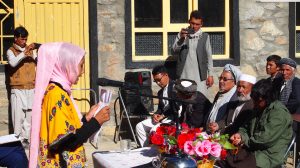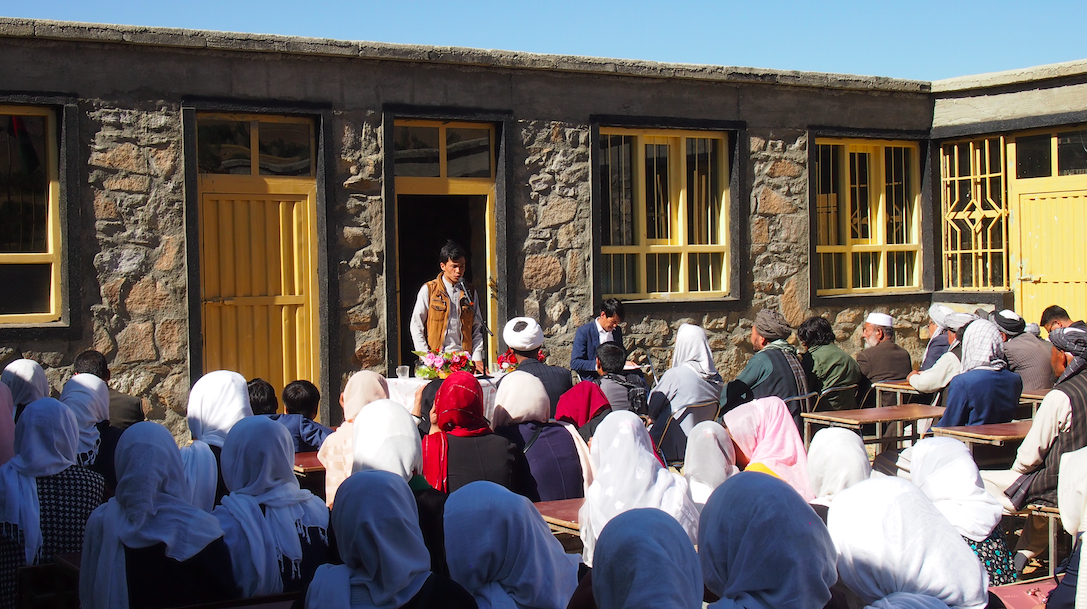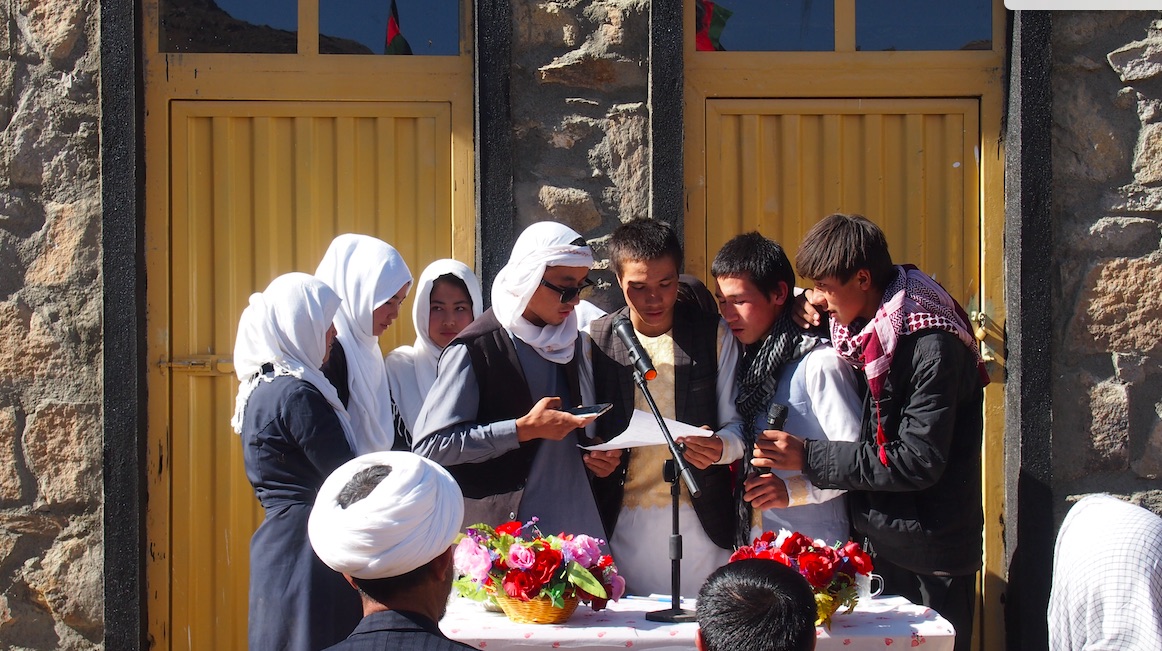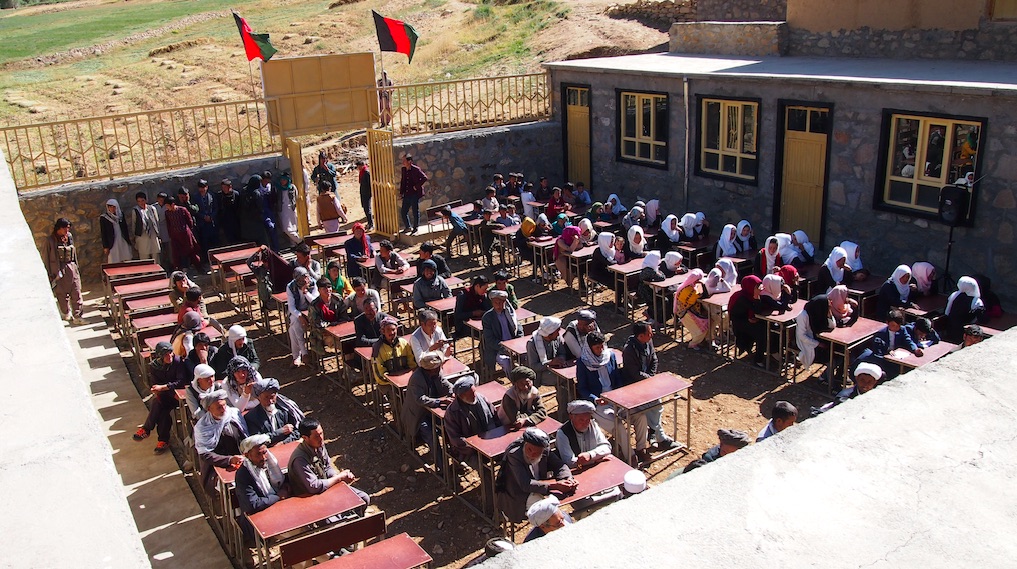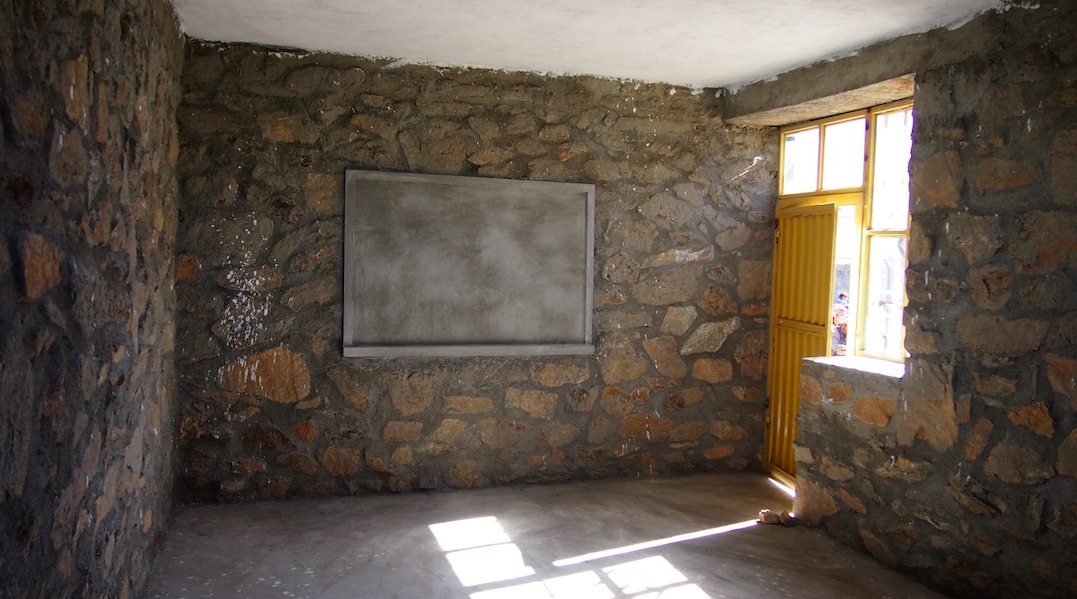By Ali Reza Yunespour, Partnership Coordinator
positive results for graduating students
The Kankor exams in Afghanistan, which are the equivalent of Australia’s year 12 exams, took place in Afghanistan in June and August this year. Across the country, a reduced number of students sat the exams due to the pandemic. In Ghazni and Maidan Wardak Provinces, where indigo foundation has supported a network of schools and teachers over the past 17 years, the smaller number of students sitting the exam reflected the national trend.
When compared to the nation-wide rates, we are excited to share that our partner high schools in Ghazni and Maidan Wardak Province had both a higher percentage of girls sitting the exams and a higher percentage of students accepted into state-funded higher education institutions.
For example, 229 students, including 72 girls, graduated from 14 high schools that indigo foundation has supported in the Borjegai and Jirghai communities of Ghazni Province and Behsud community of Maidan Wardak Province in the past 17 years.
According to Afghanistan’s higher education law, school graduates have the right to participate three times in the national admission exams (known as Kankor). This year, 140 students, including 52 girls (around 35%), from indigo-supported high schools participated in the Kankor exams.
Around 85 percent of students from our partner high schools were offered courses in state-funded university and non-university higher education institutions. Of this, around 70 percent of the Kankor participants were accepted into public universities and a further 15 percent in diploma-granting higher education institutions. The majority of the other 15 percent have been found eligible to enrol in private higher education institutions.
Nationally, 173,432 students, or around 70 percent of all school graduates, participated in the Kankor exams across the country this year. Among them were 22,220 girls, or around 12 percent of the total. Around half of these Kankor participants were accepted in the state-funded higher education institutions, including around a quarter in public universities.
In the past two decades, the higher education landscape has changed rapidly in Afghanistan. The number of public higher education institutions has grown from seven in 2002 to 38 institutions in 2019 and the number of private higher education institutions has increased from zero in 2005 to 128 in 2019. Since 2018, more than half tertiary students were enrolled in the private higher education institutions.
Nevertheless, the growing insecurity and poverty, as well as male dominated socio-cultural norms, have undermined equitable access to higher education in Afghanistan. Female students made just over a quarter of the total 424,621 students who were enrolled in the higher education sector in 2019. The majority of these girls are from the urban centres such as Kabul, Herat and Balkh and more secure provinces and districts of the country.
school opening ceremony
Over the past six months, our partners were forced to suspend school building works because they could not transport building materials into villages due to the pandemic. Now our partners are slowly resuming works – their first priority being to establish a water well at a school that ensures clean water for around 250 students and school personnel, and allows use by the wider community during religious and cultural community gatherings.
Despite a difficult six months, one of our partner schools held a formal opening ceremony on 20 September for their new school building (photos below). This followed the decision by the Afghan Ministry of Education to allow public schools to reopen for grades 11 and 12 and private schools (mostly based in urban centres) to reopen for all primary and secondary students.
The school building was completed and the school opened in late 2019. However, the ceremony to mark the opening was delayed due to the onset of winter and Covid-19 causing the closure of schools across Afghanistan.
Amidst security, economic and pandemic challenges in Afghanistan, our support for rural education has maintained community harmony and resilience in these rural communities and helped young children and their families remain hopeful for a secure and peaceful future in Afghanistan.”

